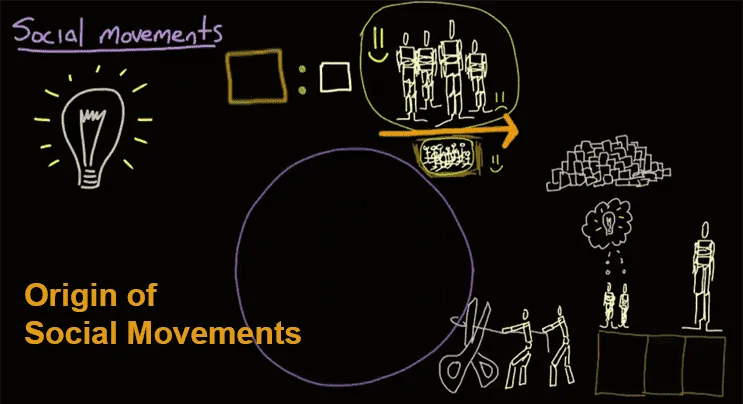Discuss the Subject Matter and Scope of Urban Sociology.
Sociologists investigate the structure of groups, organizations, and societies, and how people interact within these contexts.
Since human behaviour is shaped by social factors, the subject-matter of sociology ranges from the intimate family to the hostile mob; from organized crime to religious cults; from the divisions of race, gender and social class to the shared beliefs of a common culture and from the sociology of work to the sociology of sports.
In fact, few fields have such broad scope and relevance for research, theory, and application of knowledge.
Also read | The concepts of State Nation and Society.
Urban sociology is the study of cities and towns. The scientific study of the problems which crop up in the city life as a result of the development of the industrialization is the main subject-matter of urban sociology.
Apart from it, the study of city-communities and organization etc. also comes under the purview of the urban sociology.
Study of principles governing the-city life:
The urban sociology introduces the basic principle of the city life. According to Anderson urban sociology concerns societies living in towns and cities. This involves the study of the following two aspects of urban life.
Also read | Impact of Urbanization on Rural Society of India.
Scope relating to analytical study:
This is the second important field of urban sociology to study after the introductory part: It includes a study of various concepts in important phases of urban life, comprising the following:
City or town: A city a relatively large and permanent urban settlement. City generally means a municipality, which would typically have locally elected administration, such as a city council and a mayor. In some cases a city can also be a higher-level region.
Cities generally have advanced systems for sanitation, utilities, land usage, housing, and transportation. The concentration of development greatly facilitates interaction between people and businesses, benefiting both parties in the process.
Also read | Approaches to the study of kinship system in India.
A “city” refers to a place of relatively dense settlement dense enough so that city residents cannot grow their own food. A city population, therefore, is always dependent upon its “hinterlands” to provide it with food. Not until agriculture developed could hinterlands-provide food for their own populations and enough of a surplus to feed a city population.
And in agricultural societies the surplus was so small that only a tiny proportion of an entire population could_live in cities. Up until very recently—about 200 years ago—that proportion was limited to about 5% of an entire population. So cities existed, but there was no urbanization.
Urban community: Usually a small town or city, that is composed mostly of residents, as opposed to commercial businesses and/or industrial facilities, all three of which are considered to be the three main types of occupants of the typical community.
Also read | List of features of rural economy in contemporary India.
Urbanization: Urbanization refers to a process in which an increasing proportion of an entire population lives in cities and the suburbs of cities. Historically, it has been closely connected with industrialization.
When more and more inanimate sources of energy were used to enhance human productivity (industrialization), surpluses increased in both agriculture and industry. Larger and larger proportions of a population could live in cities. Economic forces were such that cities became the ideal places to locate factories and their workers.
Reformative scope: This part of urban sociology attempts to study the problems and solutions of the urbanization and include the following:
Also read | The Role of the Priest in Christianity.
- Unemployment.
- Insufficient solid waste disposal.
- Urban poverty.
- Inadequate housing stock.
- Insufficient solid waste collection.
- Inadequate water/sanitation facilities.
- Inadequate public transportation.
- Traffic congestion.
- Poor health services.
- Insufficient civil society participation.
- Inadequate education services.
- Air pollution.
- Urban violence/crime/personal safety.
- Discrimination (women, ethnic, poor).
Also read | The Process of Universalization and Parochialization.
Other important areas under urban sociology are urban ecology and urban morphology and urban planning.




